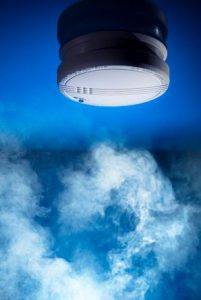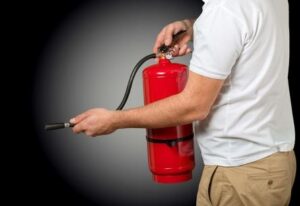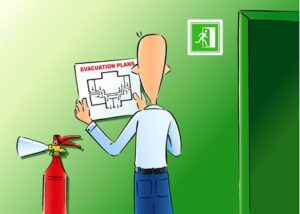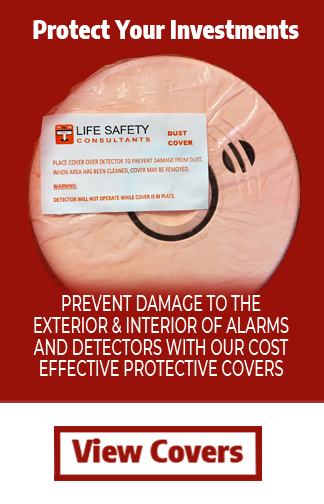 One thing all people agree on is this: no one wants to have their house catch on fire and burn down. That kind of loss can be devastating. What are some practical tips for making your home safe from fires?
One thing all people agree on is this: no one wants to have their house catch on fire and burn down. That kind of loss can be devastating. What are some practical tips for making your home safe from fires?
Know Where Fires Most Often Start
First of all, we have to consider why fires in the home start in the first place. Frayed cords and wires are a major culprit, as are overloaded circuits, grease-splattered stove tops, unattended pots and pans and candles and cigarettes, along with clogged dryer filters and vents and dirty chimneys. Even something as seemingly benign as a space heater could cause a fire, especially if placed too close to furniture or curtains. The more you care about safety in your home and take steps to keep yourself and your loved ones safe, the less likely you’ll have a fire.
Test Your Smoke Alarms
Do you have smoke alarms in your house and are they all in working order right now? If not, you need to “get on that” right away and remedy the situation. Smoke alarms are what alerts you to problems. Without them, you might be sleeping and not even realize your house is on fire. When’s the last time you checked their batteries? You need to test your alarms regularly. It’s not a bad idea to test them at least once a month. Most people change the batteries when they either “spring forward” or “fall back” with Daylight Savings Time changes. Indeed, that’s a good thing. Make it something you mark on your calendar to check/do at least twice a year.
If and when you need to buy and/or install new smoke alarms, they won’t break the bank. It’s a good idea to also get carbon monoxide detectors for your house, too. They’re similar to smoke alarms, alerting you to the presence of something that could literally kill you. Put alarms on every floor of your home, near bedrooms, and in your garage if you have one. The more the better.
Cleaning Ducts
As for practical ways you can help prevent fires in the home, when is the last time you cleaned out your dryer vent duct? You should do this at least once a year because flammable lint tends to build up in there. Also, consider cleaning out your gutters– dried foliage that’s stuck in there can catch fire. If you have tree branches hanging close to your house, cut them down so they’re not so close. That way, should a tree catch fire, it can’t easily transfer the flames to your home. Whenever possible, buy and install yard items that are made with noncombustible materials.
 Fire Extinguishers
Fire Extinguishers
Do you have fire extinguishers in your home? When’s the last time you checked to see if their pressure was a-okay and in the “green” range for “good”? Most people keep one in their kitchen. It’s also a good idea to have one in the bedroom, near the bed, in case a fire starts at night– that way you’ll have easy access to it should you need it. Fire extinguishers, like smoke alarms, don’t cost too much—and could be a real saver.
Cooking Safely in the Kitchen
When cooking on the stovetop, try using a pan or skillet lid in order to smother grease fires. Did you know you shouldn’t use water to do so? It’ll cause ignited oil to splatter! Since most kitchen fires involve oil or grease, do your best to clean it up before it gets “all over the place” and is left to linger. Of course you’ll want to teach kids to be extra careful around stoves and ovens. Plus you’ll want to make sure you’re not wearing any loose clothing (like loose sleeves) that could easily catch fire if you make one wrong move. Also be careful with curtains and towels near open flames.
 Having an Escape Plan
Having an Escape Plan
Just in case a fire does occur, you and the people you live with should have previously come up with a practiced an escape plan. You’ll want to also plan a place to meet outside so you can know where everyone will go to should a fire arise in the middle of the night unexpectedly. You can buy rope or chain ladders from the store to use to get out of second-story windows. If there’s smoke, get down on the ground and crawl to escape. If your clothes ignite, “stop, drop and roll” to put the flames out. Use the back of your hand to feel closed doors, in order to check if they’re hot or not, for safety’s sake.
Being Proactive
One of the major reasons people’s houses burn down is because someone was smoking in bed. That cigarette can ruin a whole house if a person falls asleep and/or hot ashes end up where they don’t belong– therefore, never smoke in bed! It’s also a good idea to keep matches and lighters away from children. Whenever possible, buy and use “child-proof” lighters.
With regards to electrical stuff, you’ll want to make sure you don’t overload outlets with too many things plugged in at once. Also, don’t run cords under carpet or furniture. Be especially careful with portable heaters. Turn them off when you leave the house or plan to sleep. Keep kids and pets away from them, too.
After reading all of this, you should check Life Safety Consultants’ product page to see what items you might need to stock up on.

 Fire Extinguishers
Fire Extinguishers Having an Escape Plan
Having an Escape Plan